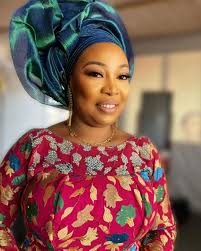
The mere mention of a piano, today in South Africa, would have many thinking of the dance genre ‘Amapiano’, thanks to how the world has taken to it.
However, the instrument itself has a rich history in South Africa, drawing on Western traditions and deeply influenced by African sounds and spirituality.
The likes of Abdullah Ibrahim, Andile Yenana, Bheki Mseleku, and Nduduzo Makhathini are figures who command reverence whenever they sit at the piano.
Diteboho Kobedi is the latest contributor to the South African piano music sheet.
“The piano is my first love, so it felt like the most natural starting point for this project,” Diteboho tells The Citizen.
The Pianist, composer, and music scholar recently released a project, Inner Gaze, which is the first volume in his Inner Gaze: Solo Piano Series.
ALSO READ: ‘I never plan my concert set list until 30 minutes before the concert,’ – Abdullah Ibrahim
An Inner Gaze
The Volume 1 EP, with its four songs, is an intimate, bare body of work that the artist describes as an exploration of solitude, personal thought, and the kind of inward questioning that requires simplicity.
“It is the only or sole instrument, so those themes run parallel to each other. Future phases of the series may include vocals, but this first phase feels true to the origin of both my relationship with the piano and the beginning of my artistic journey,” he says.
Diteboho says Inner Gaze is a contemplative body of work that looks inward through the lens of South African jazz pianism, paying homage to its rich lineage while exploring themes of calling, purpose, and the quiet questions we ask ourselves.
“I created this music while deeply interrogating ideas of predestination, divine will, and free will, a feeling that naturally invites the listener into a space of solitude, uncertainty, and the gentle clarity that sometimes comes from turning inward,” says the Tshwane University of Technology’s (TUT) performing arts lecturer.
“My instinct was to begin with my earliest influences, drawing from the giants of South African jazz piano, the spiritual depth of gospel, and subtle touches of Western classical music. Across its chapters, the series unfolds like a journey, moving from conviction, through lament, and ultimately toward solace.”
Born and bred in the Vaal Triangle township of Sebokeng, Diteboho holds a BTech in Jazz and Popular Music from the TUT, and a BMus (Hons) from the University of Pretoria.
Alongside his lecturing at TUT, Diteboho is pursuing a master’s degree.
He has worked at Steyn City School, St Peter’s College, and St Stithians College, where he conducted workshops and mentorship programmes.
ALSO READ: Nduduzo Makhathini on being criticised by ‘scholarly world’ after appearing on MacG podcast
Looking ahead
The four songs on the recently released EP weren’t recorded recently; they’ve been in the vault for a while now, and Diteboho’s artistic stance and internal standards have triggered apprehension about releasing the music.
“Releasing a project is always a daunting process for me as a musician because each time I listen, I find something I could perfect or adjust. I am admittedly my own biggest critic, so things naturally take time to feel complete,” he says.
The name of the series, “Pitso”, can be loosely translated as a calling in Setswana. In this context, he says the idea of a calling is not merely affirmed but interrogated.
“At the centre of it, it is derived from Christian notions of predestination and ‘the will of God’ versus free will, the music sits with the tension between destiny and choice,” he shares.
On a more personal level, he says he has always been curious about the indicators that reveal when someone is truly living within what they are called to be.
“This project became a journey into that question, a space to search, listen, and reflect on what alignment with one’s purpose might feel like. Hence, Inner Gaze is an intimate and introspective offering,” says the pianist and vocalist.
“It seeks to bring the listener a sense of calm, even amid the uncertainties of their own thoughts. Musically, it draws inspiration from the giants of South African jazz piano, the emotive power of gospel, and subtle elements of Western classical music, and those are some of my musical influences, so that is where it comes from.”
The series has three volumes, and he hopes to release the second instalment within the first half of 2026.
NOW READ: Saxophonist Linda Sikhakhane not pressured by signing to Blue Note Records



